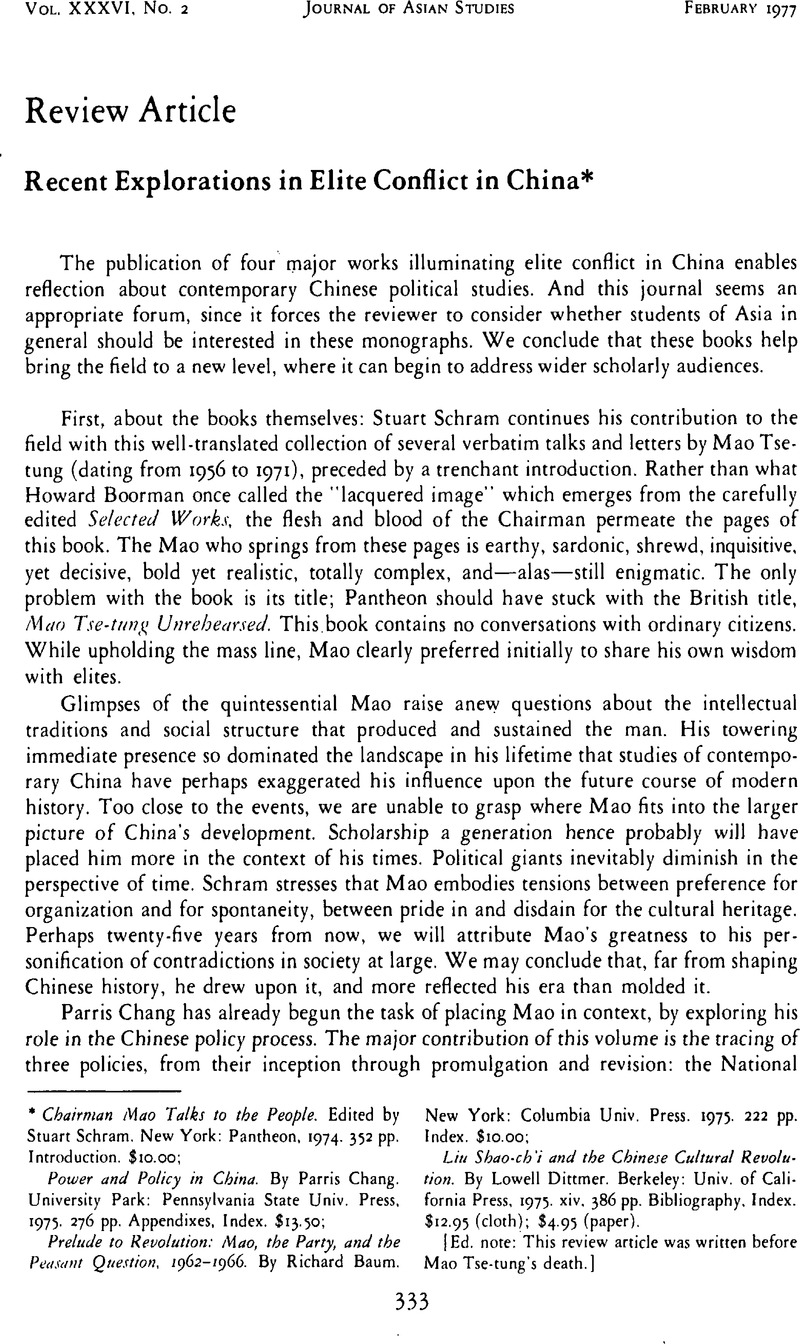No CrossRef data available.
Article contents
Recent Explorations in Elite Conflict in China*
Review products
Published online by Cambridge University Press: 23 March 2011
Abstract

- Type
- Review Article
- Information
- Copyright
- Copyright © The Association for Asian Studies, Inc. 1977
References
1 “Central Control and Redistribution in China: Central-Provincial Fiscal Relations Since 1949 (Ph.D. diss., Univ. of Michigan, 1975)Google Scholar.
2 Making Green Revolution (Ithaca: Cornell Rural Development Committee, 1974)Google Scholar.
3 Cadres, Bureaucracy, and Political Power in Communist China (New York: Columbia Univ. Press, 1967)Google Scholar.
4 See Sullivan, Larry, “Ideology and the Politics of Cultural Revolution: The Development of Chinese Communist Doctrine. 1915—1934” (Ph.D. diss., Univ. of Michigan, 1976)Google Scholar; and Seldon, Mark, The Yenani Way in Revolutionary China (Cambridge: Harvard Univ. Press, 1971)Google Scholar.
5 Friedman, Maurice. Chinese Lineage and Society (New York: Humanities Press, 1966), pp. 176–90Google Scholar.
6 See , Munro, The Concept of Man in Early China Stanford: Stanford Univ. Press, 1969)Google Scholar; and , Solomon, Mao's Revolution and the Chinese Political Culture (Berkeley: Univ. of California Press, 1971)Google Scholar.
7 “Some Themes in Chinese Rebel Ideologies,” The Confucian Persuasion (Stanford: Stanford Univ. Press, 1960), pp. 241–67Google Scholar. See also Shih, Vincent Y. C., The Taiping Ideology (Seattle: Univ. of Washington Press, 1967)Google Scholar, ch. XI.
8 See Hobsbawm, Eric, Primitive Rebels (New York: W. W. Norton, 1965)Google Scholar; Walzer, Michael, The Revolution of the Saints (New York: Atheneum, 1972)Google Scholar.
9 See Lampton, Michael, “Health Policy During the Great Leap Forward,” The China Quarterly, 60 (1974). pp. 668–98CrossRefGoogle Scholar.


